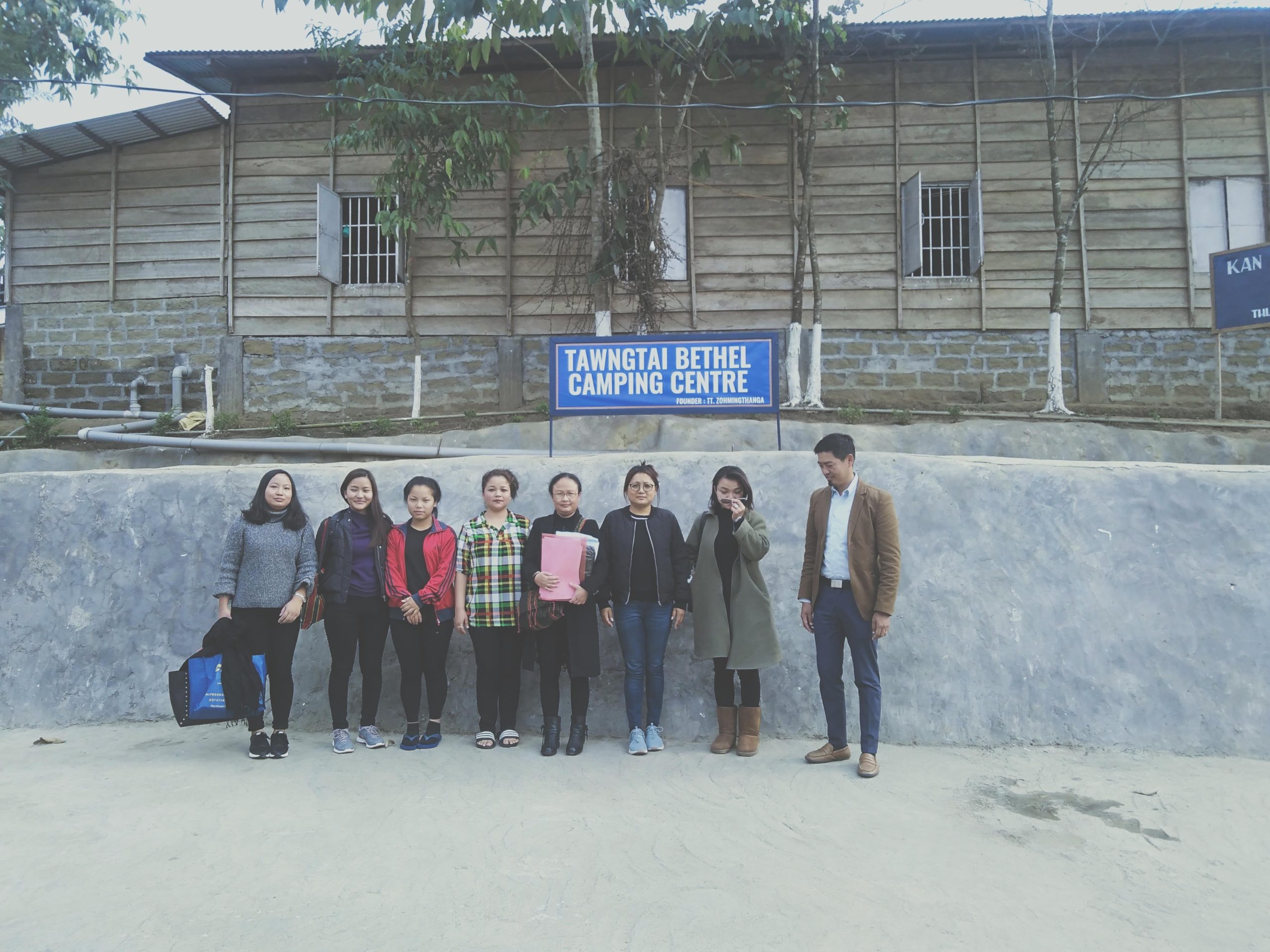Streamlining and strengthening HIV interventions in Camping Centres
Experience from Mizoram
Mizoram, the second least populous state in India with a population of 1.1 million, has the highest HIV prevalence (2.32%) in the country as per the 2019 estimates of the National AIDS Control Organization (NACO)1. 39% of the newly detected cases in the state, during 2019-20, reported acquiring the infection through sharing of infected needles and syringes. As per the 2009 estimates of NACO, there are 12,800 Injecting Drug Users (IDU) in the state. HIV prevalence among this population is 19.81% as per the 2017 estimates. As reported by the Dept. of Excise & Narcotics, Govt. of Mizoram, there were 1250 drug use-related deaths in the state during 1984 – 2013. All these factors make drug use a serious public health and social concern in the state.

I-TECH India team at TBCC
To complement the efforts of the state government to prevent and control drug use in the state, Camping Centres are being run by non-profits for the rehabilitation of drug users. The Young Mizo Association (YMA), churches and other organisations refer drug users to these centres. The duration of the therapy at these centres varies from 9-12 months. In addition to rehabilitative therapy, the inmates receive spiritual guidance and vocational training in most of the centres. Peer-led interventions are also given due importance. Those who recovered from drug use monitor and support the new entrants and others in different stages of recovery. The services at the camping centres are provided free-of-cost with the support of grants/donations received from the government, donor agencies and individuals.
Most of the centres are located in the outskirts of major towns as the space required to run a camping centre is unaffordable in the urban areas. Due to this, providing HIV services to the inmates of camping centres had always been challenging. The other reasons included, but not limited to, the high volume of cases, inadequate human resources, and unavailability of transportation. Those who were on ART at the time of their admission to the centre found it difficult to get regular ART refill.
Sankalak 2020, National AIDS Control Organization, New Delhi Besides, there were no provisions for regular HIV screening, management of Opportunistic Infections (OI) and routine viral load testing at the camping centres.
Understanding these challenges, I-TECH India started working with Tawngtai Bethel Camping Centre (TBCC), Aizawl in February 2020. TBCC, established in 2005, is the largest camping centre in the state that can accommodate up to 600 inmates. At that time, nearly 25% of the inmates were living with HIV. As the first step, I-TECH India made the arrangements for regular ART refill at the centre in coordination with the ART Centre, Civil Hospital, Aizawl.
Those who discontinued ART upon entering the centre were reinitiated. Upon streamlining these activities, I-TECH India team started the following activities at the centre:
- Regular HIV testing with the help of a mobile HIV counselling and testing unit
- Sample collection and transportation to the ART centre for baseline investigations prior to
ART initiation for the newly detected cases - ART initiation at the site by I-TECH’s mobile ART team that comprises of a medical officer,
counsellor, staff nurse and lab technician - Sample collection at the site for routine viral load testing
- Regular clinical consultations at the site for OI/side effects management
- Regular 4S screening for early detection and management of TB
- Provision for TB preventive therapy (TPT)
- Post-release linkage support: Those who complete their rehabilitative therapy and released
from the centre are linked to an ART centre of his/her choice to continue to avail HIV
treatment
Based on the learnings from implementing a comprehensive package of HIV services at TBCC, I-TECH India expanded its interventions to 4 more camping centres in the districts of Champhai, Kolasib and Lunglei during 2020-21. As on 30th June 2021, more than 500 IDUs living with HIV have regularly received their ART refill and other need-based services through the camping centres in Mizoram.
Click here to download pdf